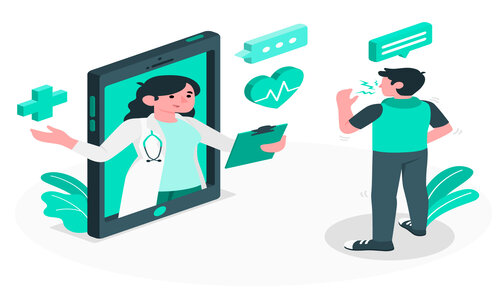


Digital healthcare solutions have revolutionized the way patients interact with medical providers, offering convenience, accessibility, and efficiency.
Digital healthcare solutions have revolutionized the way patients interact with medical providers, offering convenience, accessibility, and efficiency. However, as technology-driven care expands, many fear it comes at the cost of human connection and empathy—key elements of effective healthcare. The challenge lies in bridging the empathy gap, ensuring that healthcare apps not only deliver services efficiently but also provide a humanized patient experience.
Let’s explore how healthcare apps can integrate empathy into digital care, making it more personal, engaging, and patient-centric.
From telemedicine and AI-driven diagnostics to remote patient monitoring, healthcare apps are making medical services more accessible. While this shift enhances efficiency, it risks making interactions feel robotic patients may miss the warmth of face-to-face consultations, leading to disengagement and dissatisfaction.
A lack of human touch in digital healthcare can result in:
The solution? Humanizing digital care by integrating empathy-driven features.
A one-size-fits-all approach doesn’t work in healthcare. Apps should tailor the experience to individual patients by using AI-driven personalization that adapts content, recommendations, and reminders based on patient history, preferences, and conditions.
Examples:
Personalization helps create a connection between the patient and the platform, making digital interactions feel more human.
AI chatbots and virtual assistants are increasingly used in healthcare apps, but they often lack emotional intelligence. By integrating Natural Language Processing (NLP) and sentiment analysis, AI-driven interactions can become more compassionate.
Features to Consider:
This allows technology to mimic empathetic human communication, ensuring that patients feel heard and supported.
Digital care should complement—not replace—human healthcare providers. Apps should seamlessly integrate human interactions when needed, ensuring a balance between automation and human empathy.
Key Approaches:
These hybrid models ensure empathy isn’t lost in the digital experience.
Healthcare apps can enhance engagement by making care interactive and rewarding. Gamification strategies encourage adherence to treatment plans while keeping patients motivated.
Examples:
This makes healthcare apps feel less clinical and more engaging, fostering a sense of encouragement and connection.
As digital healthcare continues to evolve, bridging the empathy gap will be critical in ensuring that technology enhances—not replaces—human compassion in medicine. The future of healthcare apps must focus on:
✅ Personalized and emotionally intelligent AI
✅ Seamless human-digital hybrid models
✅ Engaging and interactive patient experiences
By integrating these features, healthcare apps can humanize digital care, ensuring that patients feel supported, understood, and empowered on their health journey.
